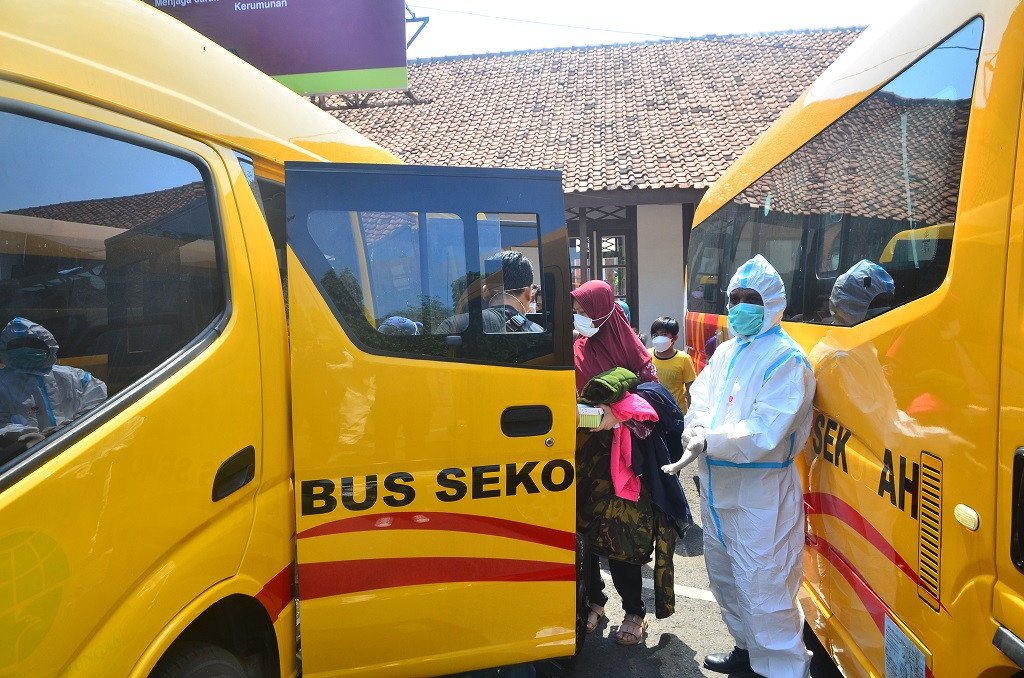Popular Reads
Top Results
Can't find what you're looking for?
View all search resultsPopular Reads
Top Results
Can't find what you're looking for?
View all search resultsBack to square one
Different strategies are a must as we are now facing more dangerous, easier to transmit, strains of the virus.
Change text size
Gift Premium Articles
to Anyone
T
he drastic surge in COVID-19 cases in the country of late only proves prior warnings that we heard ahead of the long Idul Fitri holiday in mid-May were right. This post-holiday phenomenon is actually no stranger to us but we simply let it happen, canceling out time, energy and resources we spent to put the pandemic under control.
Explosions in cases have been reported in Central Java, specifically Kudus, home to the country’s largest cigarette industry, in the East Java town of Bangkalan on Madura Island, and, to a certain extent, Jakarta. The recent spike in COVID-19 transmission has put the capital city in a critical state, with the hospital bed occupancy rate jumping to 75 percent.
Video footage showing hundreds of COVID-19 patients scrambling for rooms at the Athletes Village in Kemayoran, Central Jakarta that went viral on Monday illustrates the severity of the situation Jakarta is dealing with. The bed occupancy rate in the facility has now reached 80 percent and may increase further.
To curb the skyrocketing number of cases, the government plans to boost the daily vaccination rate to 1 million doses per day. While mass inoculation can protect us from the virus (although it is by no means a blanket guarantee), the measure alone is not enough.
Different strategies are a must as we are now facing more dangerous, easier to transmit, strains of the coronavirus. The Health Ministry has confirmed that the Delta variant, which was first detected in India, was most responsible for the country's recent case hike.
According to a number of studies, mutations may increase the Delta variant’s transmissibility and make it resistant to antibodies generated by some vaccinations, although several vaccines are known to be effective against the variant.
Indonesia has been using various brands of vaccine in its bid to achieve herd immunity against COVID-19. The government has ordered Sinovac, AstraZeneca, Pfizer and Novavax vaccines for its mass inoculation program and allowed the private sector to use only Sinopharm, Moderna and Cansino vaccines to vaccinate employees.
But with the coronavirus mutating, we should stop believing vaccination is a panacea. Not to mention the fact that humankind is facing the phenomenon of vaccine nationalism in this time of crisis.
There is no option left for the government other than taking bolder measures to deter people from violating the health protocols, a major factor in the steep rise in cases. Compliance with the protocols has proven to protect people from the virus, therefore strict enforcement of the rules is all that matters.
Local governments that face a surge in positive cases, such as Jakarta, have extended the micro-scale public activity restrictions (PPKM Mikro) until the end of this month, but the policy will be ineffective if it gives a room for people to gather and crowd.
While a lockdown is not the government's choice due to fears of economic collapse, stricter mobility curbs and uncompromised implementation of the health protocols will prevent the worst from happening.










